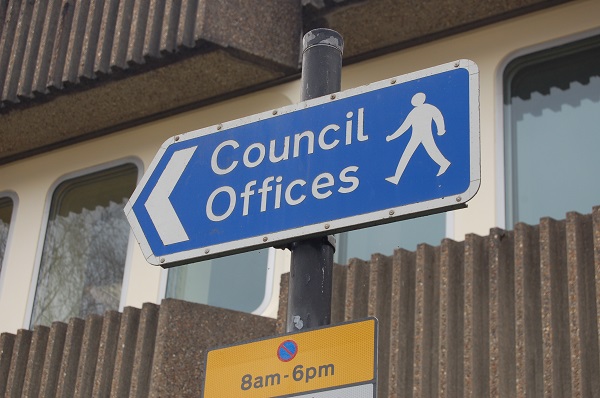 Subscribers Only
People
Subscribers Only
People 
Labour Grassroots held its Annual General Meeting in Cardiff on the last Saturday in October. It focused on the fate of public services in the age of austerity. Mark Drakeford, Assembly Member for Cardiff West, provided a keynote introduction to the day in which he set out 10 practical actions which public authorities can take to combat the onslaught of the Westminster coalition, and to help reshape public services for the future. These points are summarised below.
- Reassertion of public service ethos. Broad theme, but key one. We need to keep emphasising the extra ingredient which comes from providing services on a public service basis.
- Co-production. Future of services does rely on a radical move away from thinking of the key relationship in services as between ‘producers’ and ‘consumers’, which has dominated public discourse since the Thatcher era. Instead, co-production, in a progressive sense, captures the sense in which the contribution of people who work in service, and people who use them, are both necessary to their success. Their contributions are different, but equally valuable. Their interests have far more in common than divide them.
- Doing more directly. Large sums of public money are now spent in buying services from the profit-making sector. We need to move these services back towards the public realm. There is a role for new cooperatives and mutuals, but instead of thinking of this as a way of moving public services way from public authorities, we ought to start by identifying those things which could be moved closer to them. Social care is the clearest candidate in local government. The Arriva franchise is the stand-out example at Assembly level. The elimination of profit means that money syphoned off to far-away shareholders becomes available for reinvestment in Welsh public services.
- Predistribution. Instead of dealing with the harmful consequences of capitalism after they have already taken place, we need to find new ways of moving up-stream, to prevent that harm from occurring in the first place. Broadening access to education and economic opportunity leads to a reduction in the need for social security expenditure in the future. Paying a living wage means that the state does not need to subsidise low wages through tax credits to the same extent. Making sure that restaurants and other food outlets conform to high levels of food hygiene prevents expenditure on dealing with food poisoning. Councils spend a good deal of money on after-the-fact regulation and inspection. We need to concentrate more on tackling the causes of problems, rather than dealing with their consequences.
- Prevention. So much welfare expenditure is soaked up in the difficult battle of putting right lives where things have gone badly wrong. Done in the right way early and preventative intervention is much better for individuals and represents a sound investment for the public purse. The Cardiff Council exploration of a social investment bond-type intervention to reduce the number of children being received into the care system is a good example.
- Less can be more. We need to move away from a concentration on service-by-volume. Doing more isn’t always to do better. Reablement services in many parts of Wales demonstrate that helping older people to recover capacity, so that they can go on doing things for themselves, is a better investment for people and for service.
- Local, experimental and collective. Wales is full of very active, very committed and very local activity in relation, for example, to community currencies, renewables, transition towns, timebanks. Public services in an age of austerity have to foster such actions – helping them to happen, and even allowing them to fail, where that’s the outcome. They are a new but fundamentally important part of rebuilding the public realm.
- Collective action beyond the state. In Wales, the close connections between the Labour Party and the wider labour movement mean that we are well placed to support and draw on collective action beyond the state itself. The recent Wales TUC agreement to move forward on exploring a Quebec Solidarity Fund for Wales is one such example. Unite’s decision to create a nation wide credit union for its member is another.
- Greater social protection and greater focus on the work place. The conventional mantra of nearly forty years, identifying Trade Unions as part of the problem of modern economies, has been profoundly wrong. Countries with strong systems of social protection, in which unions play a significant part, create more dynamic economies. Moreover, unions are essential partners in creating better work places. Those in employment spend significant portions of our lives in our work places, and the quality of that experience makes a real impact on all other parts of our lives too. At a time of extensive real-terms reductions in wages, there is still much which public sector employers can do to improve the experience of the work place, in ways returned many times over in employee satisfaction with all that means for quality, loyalty and improved performance.
- Equality comes first. Finally, but most importantly of all, running through the whole public service experience, in an age of austerity, must be the pursuit of a more equal society. It is the touchstone which today, as ever, separates those with a truly progressive determination from those whose ambition is only an amelioration of the status quo. The unremitting strength of neo-liberal propaganda means that many of our fellow citizens underestimate the scale of inequality in the United Kingdom today, underestimate the ability of government to do anything about it, and overestimate the costs involved in taking action to address it. As Danny Dorling has demonstrated, UK earners today have around £100 billion less in their pockets than if the cake had been shared as it was in the late 1970s. By itself that is a massive squeeze on effective demand in the economy which lies at the root of the failure to emerge from recession.


